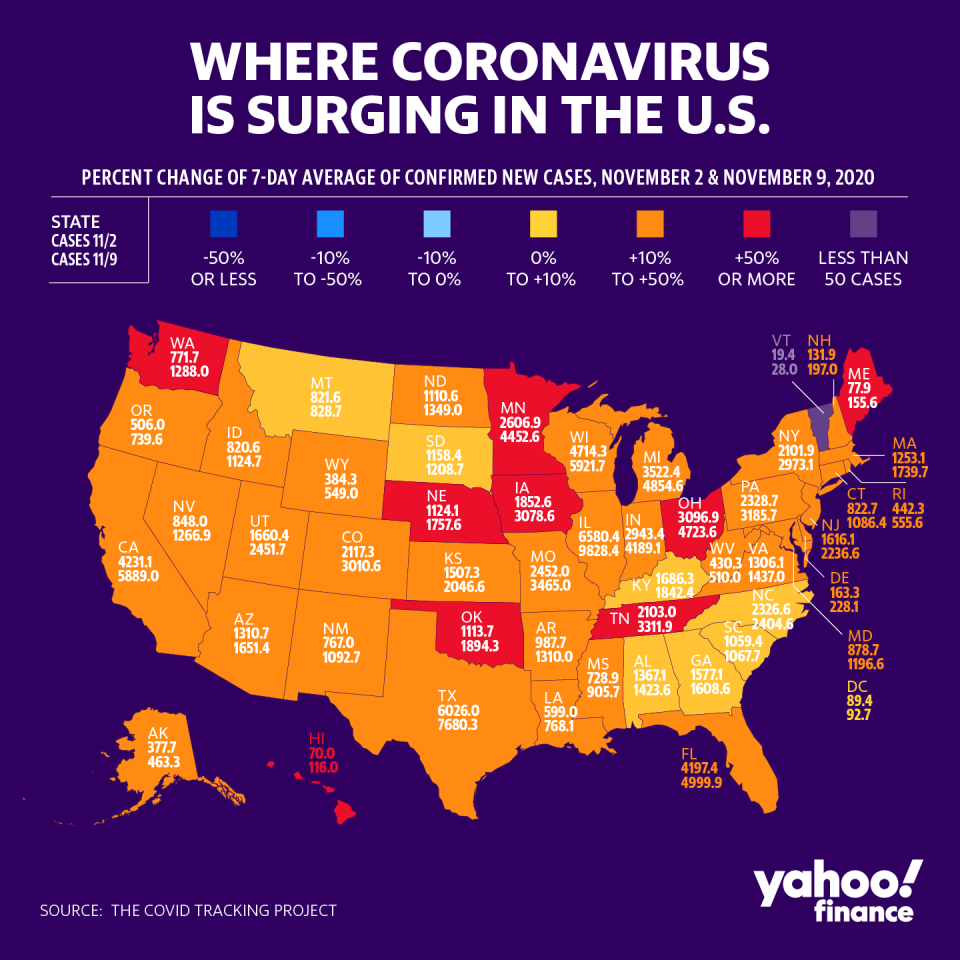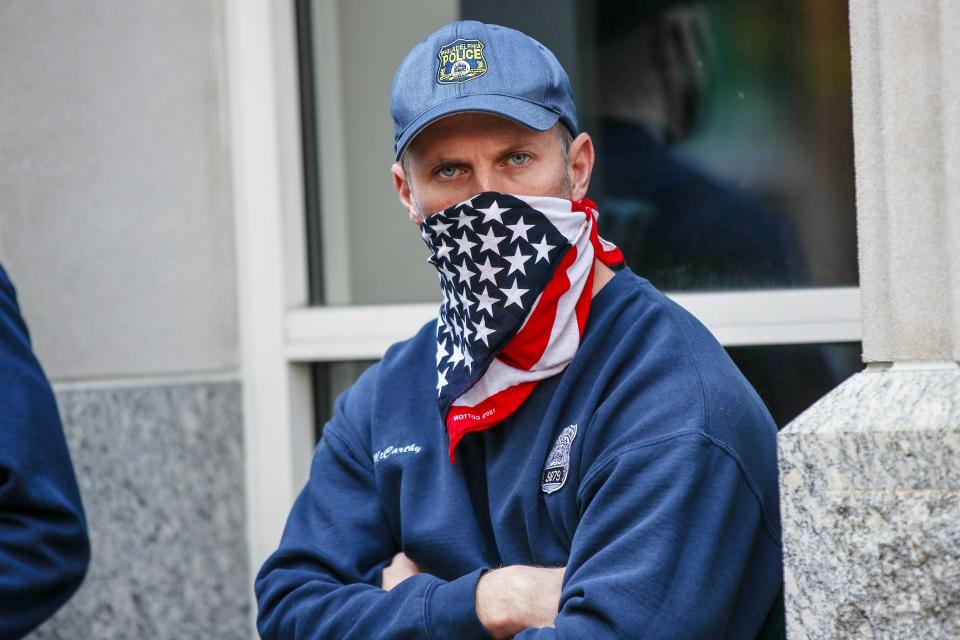Coronavirus vaccine 'doesn't help us today' as America sees deadly transmission surge
Pfizer (PFE)’s recent announcement that its COVID-19 vaccine apparently more than 90% effective experiencing brought new hope for an eventual end to the coronavirus pandemic.
However, if the vaccine were to receive approval from the Food & Drug Administration (FDA), it would likely take months for widespread distribution and inoculation. In the meantime, experts are urging the American public to continue following public health guidelines, including mask wearing and social distancing.
“While the vaccine news is great and we hope there’ll be more favorable vaccine news,” Chris Meekins, health care policy analyst at Raymond James, told Yahoo Finance Live (video above), “it’s important to remember that doesn’t help us today. That doesn’t help us tomorrow. That doesn’t help us a month from now. That may help us by the start of next year. Maybe in the second quarter of ‘21, everyone will have access to it.”
The U.S. is seeing a record number of coronavirus cases and hospitalizations as widespread transmission continues across the country. Week over week, 44 states saw at least a 10% increase in the number of cases. There are now more than 51.6 million cases worldwide, and the U.S. accounts for 10.2 million of them, according to the latest Johns Hopkins data.
“When you look at things, it’s not going in the right direction,” Meekins said. “You’ve got more than a dozen states that have a positive test rate above 15%, which tells you there’s an out-of-control outbreak in those areas. You have more than a half dozen states with at least 10% of their hospital beds occupied by COVID patients.”

‘More lockdowns are going to be likely’
Every U.S. state except for Vermont currently has a positivity rate above 1%.
The situation is particularly dire in several states. South Dakota’s positivity rate is currently at 54.6%, suggesting that the coronavirus is running rampant and much more testing is needed. The GOP governor, Kristi Noem, has refused to implement mask mandates or shut down any businesses. Missouri, Wyoming, Idaho, and Kansas are also trending poorly, with positivity rates above 40%.
In North Dakota, a shortage of health care workers led the governor to allow those with asymptomatic cases of COVID-19 to continue to treat patients amid overwhelming demand.
A vaccine is “not a right-now solution,” Meekins stressed, and so “these local governments, these state governors, are going to have to make a decision about how to handle this latest outbreak. And I think more lockdowns are going to be likely. Period.”

Several countries around the world are having similar experiences. British Prime Minister Boris Johnson implemented a second nationwide lockdown after cases spiked across the United Kingdom. France, Belgium, Hungary, and Germany resorted to similar measures.
German Chancellor Angela Merkel echoed a similar sentiment to public health experts that a vaccine doesn’t help with the current situation, particularly as the winter approaches and people are forced to spend more time indoors.
“One must now assume that the second wave is tougher,” Merkel said. “It will keep us busy all winter, even if we now have positive messages about the development of vaccines.”
Meekins doesn’t see a nationwide U.S. lockdown while Trump is still in office. President-elect Joe Biden taking office in January raises the possibility of certain nationwide mandates.
“When the assumed president-elect takes office at the end of January, it’ll be a topic of conversation if things continue to go as bad as they are,” Meekins said. “But I think most of it’s really going to be at the state level. And I think we’re going to start hearing from states in the coming days.”
Adriana Belmonte is a reporter and editor covering politics and health care policy for Yahoo Finance. You can follow her on Twitter @adrianambells.
READ MORE:
Coronavirus: ‘These attacks on experts are going to haunt us,’ doctor says
Coronavirus: ‘The pandemic is clearly out of control’ and America needs to mask up, doctor warns
Read the latest financial and business news from Yahoo Finance
Follow Yahoo Finance on Twitter, Facebook, Instagram, Flipboard, LinkedIn, YouTube, and reddit.
